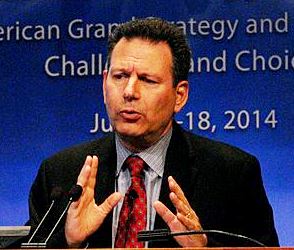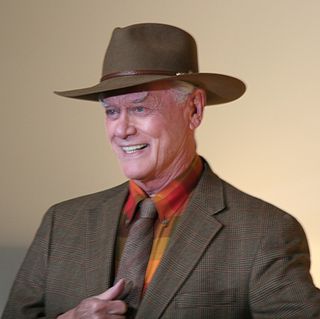A Quote by Leroy Chiao
You saw Britain back in the early days of sailing ships. They were the sea power, the controlled the seas and they had colonies all over the world and then you can look at history and watch the way that their empire kind of crumbled. I certainly don't want that to happen to the United States in space technology.
Related Quotes
No man ever saw the people of whom he forms a part. No man ever saw a government. I live in the midst of the Government of the United States, but I never saw the Government of the United States. Its personnel extends through all the nations, and across the seas, and into every corner of the world in the persons of the representatives of the United States in foreign
capitals and in foreign centres of commerce.
Oil platforms are a technology for floating permanently on the high seas, and cruise ships are a technology for self-governance on the high seas, and if you combine these two technologies, imagine cruise ships that never dock but float permanently. Imagine if they were 10 times as big. Imagine if they were modular and could move about and you could choose the neighbours you wanted to live with.
Over the years, there certainly have been plenty of ideas that I've had and given up on, but for this one, the only thing that was standing in its way was me doing it - I just had to write it... And then if it didn't happen, it didn't happen. But I didn't want it to be for lack of effort on my part, so I had hunch that it would be a good story and that we would work well together. And it certainly worked out that way.
Actually, the phrase "national security" is barely used until the 1930s. And there's a reason. By then, the United States was beginning to become global. Before that the United States had been mostly a regional power - Britain was the biggest global power. After the Second World War, national security is everywhere, because we basically owned the world, so our security is threatened everywhere. Not just on our borders, but everywhere - so you have to have a thousand military bases around the world for "defense."
Never mind that from the 1600s until the late twentieth century the population the United States was 85% white, 12% black, and there have been changes demographically in the United States since the days of its founding. So they're trying to tell you that the United States' greatness happened because of diversity. Well, go back and look at the days the country was founded, and they do. When they do that, they see how racist and bigoted this country was. they see the seeds for bigotry and racism and discrimination were sown at the founding, is how it's now taught.
If you want to understand what's going to happen, you can't look in the rearview mirror into the United States' history, because that's done now. You have to look out at the rest of the world and look at the history of the rest of the world, and what you'll see is demonstrations and counter-demonstrations are going to become the norm. We'll have a big march, then they'll have a big march, we'll have a big rally and they'll have a big rally. That will be one of the features. Again, a pro-regime and pro-opposition media system, that will become a feature.
What everybody forgets is that when I was a journalist in Britain and in the United States, I was always a Canadian. And the price of expatriation does not go down, it goes up. I never felt part of the political common sense of Britain. I never felt it in the United States. I had no natural home in Britain and the U.S.

































